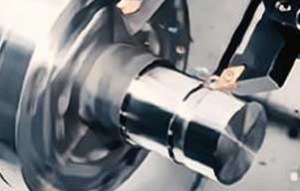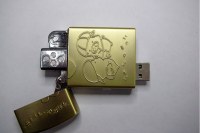China CNC Machining Factory--Custom Metal CNC Parts, Plastic CNC Parts, Sheet Metal Fabrication Manufacturer
As a professional CNC machining parts and rapid prototypes manufacturer in China, YS Rapid has provided CNC services and rapid prototyping services to global customers in various applications. With over ten years of experience and continuous improvement in CNC parts and prototype parts manufacturing, we have become a reliable CNC machining manufacturer in China. Combined with our advanced equipment and rich experience, we are able to provide the best processing services with CNC milling parts, CNC turning parts, sheet metal parts, rapid prototypes, and other custom-made parts in a broad range of materials, from plastic to metal.
How to Choose Suitable Materials for Your CNC Machining Parts
No matter what industry you are in, choosing the right material is one of the most important factors in determining the overall function and cost of your part.
CNC machining can manufacture precision machinery parts for almost any application. This allows very tight tolerances for part dimensions and complex designs. However, as with any manufacturing process, material selection such as hardness, stiffness, chemical resistance, heat treatment, and thermal stability are key factors in determining the overall function and cost of the project.
We manufacture machined CNC parts and prototype parts in a wide variety of metal and plastic materials as well as other custom materials upon request.
Custom Metal CNC Machining Material
Soft metals such as aluminum and brass, as well as plastics, are generally easier to machine and require less time to cut material from the workpiece, reducing the time and cost of machining. Hard materials such as stainless steel and carbon steel should be machined using slower spindle RPMs and machine feed rates, resulting in longer machining times than softer materials. In general, aluminum can be machined four times as fast as carbon steel, and stainless steel can be machined half as fast as carbon steel.
The type of metal material is an important factor in determining the total cost of a part. For example, a 6061 aluminum bar costs about half the cost of an aluminum plate. The cost of 7075 aluminum rods can be two to three times the cost of 6061 rods. 304 stainless steel costs about two to three times the cost of 6061 aluminum and about twice the cost of 1018 carbon steel. Depending on the size and shape of the part, material costs can be a significant portion of the total price of the part. If your design does not require the performance of carbon steel or stainless steel, consider 6061 aluminum to minimize material costs.
Custom Plastic CNC Machining Material
If the product design does not require the rigidity of metal, plastic materials can be a cheaper alternative to metal materials. Polyethylene is easy to process and costs about 1/3 of 6061 aluminum. Plastics can be a cost-effective alternative, but depending on the geometry, plastics may not be easy to meet tight tolerances, and the stresses created when removing material can cause parts to become brittle after machining and potentially warp.
Factors That Affect The Selecting of cheap cnc material
Application of Your Part
The end use of a CNC machined part has the greatest impact on material selection. For example, if the part will be used outdoors or in a damp environment, use stainless steel instead of carbon steel to prevent the part from rusting. Design specifications such as stress loads, tolerances, and fastener types (welds, rivets) also affect material selection. Specifications such as military and aerospace components and the FDA regulatory environment also influence material selection.
Does Part Weight Matter?
Generally speaking, if you want metal, a standard aluminum alloy like 6061 is a good low density option to save weight. If the product does not require as much strength, plastics such as ABS can help reduce weight even more.
Strength and Heat Resistance
There are many different ways to judge the strength of materials, such as tensile strength, material hardness, wear resistance, etc. Selecting materials of different strength types in conjunction with your design requirements can help you determine the best material for a part. Additionally, very low or very high temperatures can limit the use of certain materials. This is especially true in environments with large temperature changes, as even small temperature changes can cause some materials to expand or contract significantly.
The Budget of the Product
Manufacturability and overall cost of the project will affect your material selection. Generally speaking, the more material you use in a part, the more it will cost. Also, special and very strong materials such as titanium will cost more.
Ubicación : No.618, Build B, Fuxin Building, Shajing, Baoan, Shenzhen city, 518103 China, 518106 shenzhen,
Persona a contactar : pid ysra, 8615817251032







